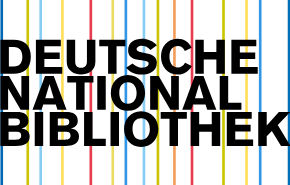THE PSYCHOLOGICAL APPROACH IN TEACHING LATIN LANGUAGE
DOI:
https://doi.org/10.55640/Keywords:
Latin language, psychological approach, language teaching methodology, learning motivation, individual learning style, classical languages, psychology in language acquisition, emotional environment, didactic approach, educational effectivenessAbstract
This article thoroughly examines the impact of psychological approaches on the effectiveness of teaching Latin. Research indicates that lesson plans designed with consideration for students’ individual characteristics, motivation, and stress levels significantly enhance learning outcomes (Deci & Ryan, 2000). Psychological factors are among the key elements in mastering classical languages.
Downloads
References
1.Vygotsky, L. S. (1978). Mind in Society. Harvard University Press.
2.Gardner, H. (1983). Frames of Mind: The Theory of Multiple Intelligences. Basic Books.
3.Deci, E. L., & Ryan, R. M. (2000). Intrinsic and Extrinsic Motivations: Classic Definitions and New Directions. Contemporary Educational Psychology.
4.Oxford, R. L. (1990). Language Learning Strategies: What Every Teacher Should Know. Newbury House.
5.Dörnyei, Z. (2005). The Psychology of the Language Learner: Individual Differences in Second Language Acquisition. Lawrence Erlbaum.
6.Hamre, B. K., & Pianta, R. C. (2001). Early teacher–child relationships and the trajectory of children’s school outcomes through eighth grade. Child Development.
7.Harmer, J. (2007). The Practice of English Language Teaching. Pearson Longman.
8.Rocca, J. (2012). A Short History of Medical Terminology. Oxford Medical Press.
9.Creswell, J. W. (2014). Research Design: Qualitative, Quantitative, and Mixed Methods Approaches. SAGE Publications.
10.MLA Language Enrollment Database (2023). Modern Language Association.
Downloads
Published
Issue
Section
License

This work is licensed under a Creative Commons Attribution 4.0 International License.
Authors retain the copyright of their manuscripts, and all Open Access articles are disseminated under the terms of the Creative Commons Attribution License 4.0 (CC-BY), which licenses unrestricted use, distribution, and reproduction in any medium, provided that the original work is appropriately cited. The use of general descriptive names, trade names, trademarks, and so forth in this publication, even if not specifically identified, does not imply that these names are not protected by the relevant laws and regulations.






